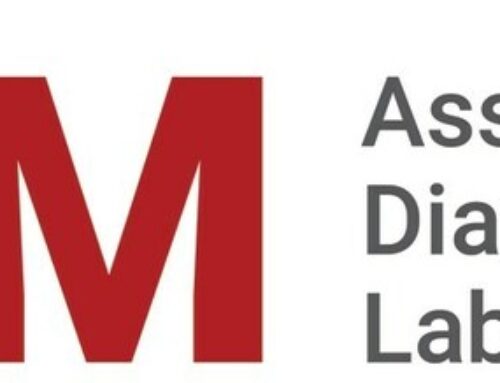Maine’s community solar program sees rapid growth in 10 years
November 13, 2025
Maine’s community solar program sees rapid growth in 10 years
Net energy billing gives utility customers an option to purchase solar credits that could offset their utility bills.
Updated: 6:46 AM EST Nov 13, 2025
Maine’s net energy billing, or community solar program, has been an option for Mainers to find potential savings on their electric bills for 10 years. Interested customers can subscribe to the program and purchase solar credits that will be put towards their Central Maine Power or Versant Power energy bills. Subscribers who have found success with the program say they’re getting an average of 15% savings. However, 8 Investigates found some subscribers have paid for more credits than they could use, because the solar bill is based on how much energy is produced by the solar farm, not how much electricity is used by the customer and credits expire.The governor’s Energy Office found the state has gone from generating 17 megawatts of solar energy in 2015 to 1,641 megawatts in 2025. “Starting around 2018, 2019, the trajectory really took off for solar projects around the state,” said Henry Barrett, the director of business development for Nexamp. Barrett cites an increase in demand and awareness, and changes in state legislation. In 2025, Gov. Janet Mills signed legislation aimed at addressing high and rising costs within the solar community program. “Maine’s community solar program needs reform precisely because it has been so successful,” wrote Maine’s Public Advocate, Heather Sanborn, in July. “We set out to build 750 MW of solar, and instead we’ve built more than 1600 MW. Now we need to make sure that solar power is delivered affordably to Mainers going forward.”Barrett also hopes the legislation offers more guidance for solar companies operating in Maine. He said, “I think having a long-term, stable, political, regulatory environment will really help companies plan ahead. It takes years for some of these projects to come online, so companies really need a long-term horizon to plan and to invest and to line up all the different pieces that go into a project.”Leslie Geissinger, of Jay, is a community solar subscriber who also leases a portion of her farmland to Nexamp. The Geissinger family is now looking for ways to use that land, which they say wasn’t great for growing, for other agricultural purposes like grazing or cultivating mushrooms. “It gives us a steady farm income,” she said. “That is a challenge to achieve on a small New England farm where yields are unpredictable. Income is unpredictable.”As a solar subscriber, Geissinger says she is saving money on utility bills, but, more than that, she was pleased to contribute to the environment. She hopes other Mainers will consider solar. She said, “I think the biggest benefit for community solar is that it allows people to use renewable energy without having to make the investment in infrastructure in their own home.”Before subscribing to the program and signing up with a specific utility company, the Maine Public Utilities Commission recommends researching a solar company’s track record before deciding who to work with. It’s also advised to ask questions and pick a subscription that works best for your needs to avoid being overcharged.
Maine’s net energy billing, or community solar program, has been an option for Mainers to find potential savings on their electric bills for 10 years. Interested customers can subscribe to the program and purchase solar credits that will be put towards their Central Maine Power or Versant Power energy bills.
Subscribers who have found success with the program say they’re getting an average of 15% savings. However, 8 Investigates found some subscribers have paid for more credits than they could use, because the solar bill is based on how much energy is produced by the solar farm, not how much electricity is used by the customer and credits expire.
The governor’s Energy Office found the state has gone from generating 17 megawatts of solar energy in 2015 to 1,641 megawatts in 2025. “Starting around 2018, 2019, the trajectory really took off for solar projects around the state,” said Henry Barrett, the director of business development for Nexamp.
Barrett cites an increase in demand and awareness, and changes in state legislation. In 2025, Gov. Janet Mills signed legislation aimed at addressing high and rising costs within the solar community program.
“Maine’s community solar program needs reform precisely because it has been so successful,” wrote Maine’s Public Advocate, Heather Sanborn, in July. “We set out to build 750 MW of solar, and instead we’ve built more than 1600 MW. Now we need to make sure that solar power is delivered affordably to Mainers going forward.”
Barrett also hopes the legislation offers more guidance for solar companies operating in Maine. He said, “I think having a long-term, stable, political, regulatory environment will really help companies plan ahead. It takes years for some of these projects to come online, so companies really need a long-term horizon to plan and to invest and to line up all the different pieces that go into a project.”
Leslie Geissinger, of Jay, is a community solar subscriber who also leases a portion of her farmland to Nexamp. The Geissinger family is now looking for ways to use that land, which they say wasn’t great for growing, for other agricultural purposes like grazing or cultivating mushrooms.
“It gives us a steady farm income,” she said. “That is a challenge to achieve on a small New England farm where yields are unpredictable. Income is unpredictable.”
As a solar subscriber, Geissinger says she is saving money on utility bills, but, more than that, she was pleased to contribute to the environment. She hopes other Mainers will consider solar.
She said, “I think the biggest benefit for community solar is that it allows people to use renewable energy without having to make the investment in infrastructure in their own home.”
Before subscribing to the program and signing up with a specific utility company, the Maine Public Utilities Commission recommends researching a solar company’s track record before deciding who to work with.
It’s also advised to ask questions and pick a subscription that works best for your needs to avoid being overcharged.
Search
RECENT PRESS RELEASES
Related Post




